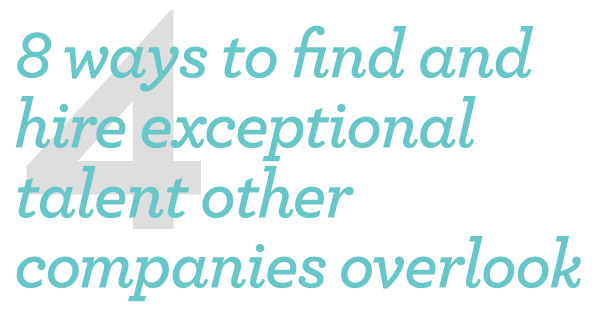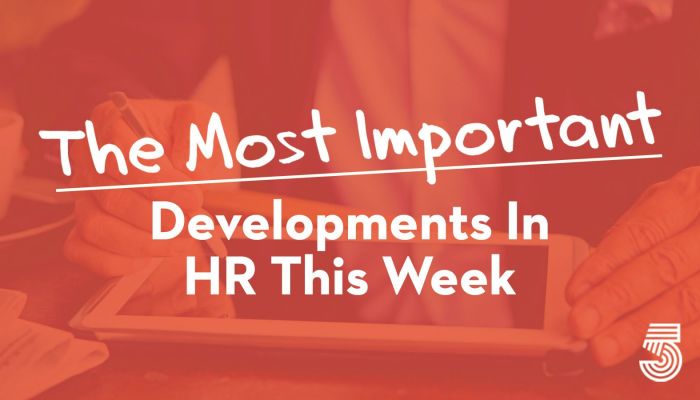The M.I.D., as we call it, is curated by our editorial team from more than 50 news sources. Like a lot of good ideas, this started as something I wanted for myself. If I can’t read everything, I at least want to stay abreast of the most important developments.
This week in HR, companies wondered about taking a stand in the Ukraine war, got advice about how to build trust in remote teams, and between the old and new guards, learned interesting tactics for the hiring wars, and the EEOC issued guidance about caregiving leave.


Over the past two years, turmoil after turmoil — from an ongoing health crisis to social justice issues — have caused distress among employees worldwide and spurred smart employers into action. Now, the latest threat of instability is calling employers to further action: the Russian invasion of Ukraine. Employers with employees or business in those countries surely have different mandates on actions — companies including Starbucks and McDonald’s have halted operations in Russia, for instance — but even without obvious ties to the area, it’s important that employers step up, experts say, as the situation has many employees reeling and worried about a global conflict and significant U.S. involvement. From taking a stance on and communicating with employees about the latest concerns to acting with empathy and boosting mental health efforts, the consensus, according to experts, is that employers cannot be silent on the crisis in Europe or ignore the toll it is taking on employees’ wellbeing. HR Executive


Let’s face it, in today’s high-collaboration environment, it’s hard enough to build trust in teams in person. Now that many of us are working remotely from one another as a result of the pandemic, it’s even harder. Here’s how to build trust in remote teams: Managers will have to let go of their reliance on time and place. I have always said that time and place are poor indicators of employee success. They are a lazy manager’s measure. Just think about it: it would be ridiculous for you to say one person is performing better than another, simply because they are in the office more. Right? Remote work provides an opportunity for managers to foster a level of trust with the team members they may never have been afforded in the office — that is, to choose when and how they get their work done. Results are what matter. The currency of work is in what value individual members can add, consistently and reliably. Training Magazine


One of the unfortunate byproducts of the serial changes of the last two years has been fragmentation across organizations. Such division is the result of things like varying beliefs about how much flexibility workers should have in terms of where and when they work, as well as abrupt shifts in business models. And that’s on top of the physical isolation people are feeling due to remote work. Some research from Microsoft suggests that collaboration across the organization went down by 25% during the pandemic. One of the most divisive factors has been the mass exodus of employees from the workplace, alongside a significant amount of hiring to bring on new ones. Relational dynamics have been torn without the opportunity to re-stich the seams between new connections. So, companies are left with numerous camps of “we’s” and “they’s.” As one leader at an organization I’ve consulted with put it, “The proverbial ‘old guard’ and ‘new guard’ are at war with each other.” HBR


Our new virtual world has increased the need for multifaceted candidates who can quickly adapt to new environments and maneuver remote workplaces with strong communication and time management skills. Some of the top candidates who can overcome the challenges of remote work and thrive are self-starters who have taken less traditional paths to teach themselves new skills. Employers must also realize that when sourcing and hiring candidates based on specific backgrounds, they continue to perpetuate pedigree bias, overlooking entire populations that have taken the path less traveled to learn the same skills. This is a tremendous missed opportunity for hiring managers and teams, especially amid the “Great Reshuffle” where high numbers of professionals are pivoting to new industries for better compensation and work-life balance. For example, candidates are transitioning from high-burnout and lower-paying sectors (e.g., leisure and hospitality, arts and entertainment, and retail) in droves. To learn in-demand skills and make a successful career change in a hot job market, many are using nontraditional ways of learning, such as tech bootcamps, digital courses, and free online resources. Here’s how to find — and then interview — these overlooked candidates. Fast Company


Even if an employer means well, assumptions about caregivers may result in illegal discrimination, according to the updated technical guidance, which was issued by the EEOC March 14. “As the pandemic evolves and the country moves to a new normal, we cannot assume caregiving obligations have ended,” said EEOC Chair Charlotte Burrows. “By ensuring that caregivers know their rights and employers understand their responsibilities, the EEOC will help ensure that America’s recovery from the pandemic is an equitable one.” Anthony Dick, an attorney with Fisher Phillips in Cleveland, noted that human resource professionals, corporate in-house counsel and front-line managers continue to grapple with issues surrounding employees’ caregiving obligations in the wake of the pandemic. Title VII of the Civil Rights Act of 1964, the Americans with Disabilities Act and other employment laws don’t explicitly cover caregivers, he noted, but employers can still run afoul of these laws when they act on assumptions or stereotypes or when they apply policies unevenly based on protected traits. SHRM










